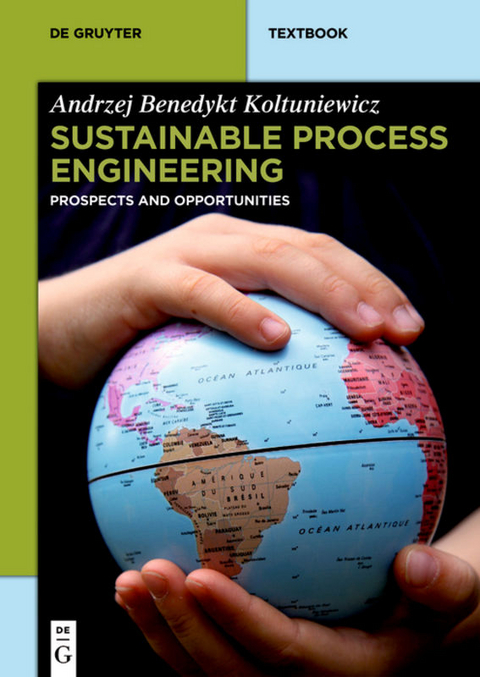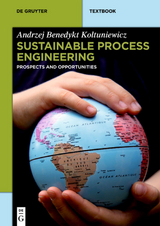Sustainable Process Engineering
De Gruyter (Verlag)
978-3-11-030875-4 (ISBN)
Andrzej Benedykt Koltuniewicz, Warsaw University of Technology, Poland.
From the Contents:
The Inevitability of Sustainable Development
- Global development and its environmental impact (examples of present state and need for change).
- Material problems of civilization (limited space, limited resources, energy and water, resulting from pollution, and health consequences).
- Insufficient actions towards protection of our environment (conventions, directives, standards and conventional technologies of "end-pipe").
Past and Today of Process Engineering
- The origins and domains of process engineering (development history, needs and products).
- Principles and systematics (process engineering methodology: unit processes, physical phenomena and their mathematical models, "conservation laws", balances of mass and energy,
- The development of new unit processes.
Modern Process Engineering
- Multidisciplinary prospects of Process Engineering development.
- The development of the methods for observations, visualization and analysis.
- The development of the computation and decision making.
- The development of designing methods.
- The Roles of Process Engineering in Taking Market Competitiveness (CCC-cheaper, cleaner, cleverer).
New Process Engineering, i.e. New Materials and New Processes
- Nanotechnology and nano-processes, i.e. new range and new applications.
- Microreactors and their numerous advantages.
- Membranes and their unlimited opportunities of separations.
- Membrane contactors, i.e. as duplicate of the conventional unit processes in new layout.
- Hybrid processes, i.e., infinite combination of new processes and materials.
New Sectors, or How Process Engineering is Used in New Multidisciplinary Areas Assisting in Obtaining New Resources of Energy and Raw Materials
- Clean technologies (power efficient and new production methods, recovery, reuse and management of materials, wastes as valuable resources, retrofitting of existing plants and cleaning of contaminated postindustrial areas).
- Environmental protection (care on air and water, and other nonrenewable resources, prevention against pollution and excessive consumption of our environment, and combating against global warming and desertification.
- Energy savings, safe production of energy. The using renewable energies and fuels, fuel cells, fuels from wastes.
- Biotechnology (the role of process engineering for biotechnology, new perspective on a cheap, clean and energy-saving production, , essential simplification of biological processes)
New Process Engineering Closer to Man
- Medicine applications with using of process engineering (examples of controlled release of drugs, artificial organs, production of new drugs, how to make synthetic medicines such as natural, how to adapt materials for bio-compatible implants and new diagnostic methods).
- Food production (healthy food and food additives, food quality control, seeking for geographical origin of the food, clean agriculture, farming and forestry, seeking for geographical origin of the food, the water scarcity, water production for the needy)
| Erscheint lt. Verlag | 26.5.2014 |
|---|---|
| Reihe/Serie | De Gruyter Textbook |
| Zusatzinfo | b/w line drawings |
| Verlagsort | Berlin/Boston |
| Sprache | englisch |
| Maße | 170 x 240 mm |
| Gewicht | 691 g |
| Themenwelt | Naturwissenschaften ► Chemie ► Technische Chemie |
| Technik ► Umwelttechnik / Biotechnologie | |
| Wirtschaft ► Betriebswirtschaft / Management ► Unternehmensführung / Management | |
| Schlagworte | Chemische Industrie • Chemische Technik • Industrielle Chemie • Verfahrenstechnik |
| ISBN-10 | 3-11-030875-4 / 3110308754 |
| ISBN-13 | 978-3-11-030875-4 / 9783110308754 |
| Zustand | Neuware |
| Haben Sie eine Frage zum Produkt? |
aus dem Bereich




